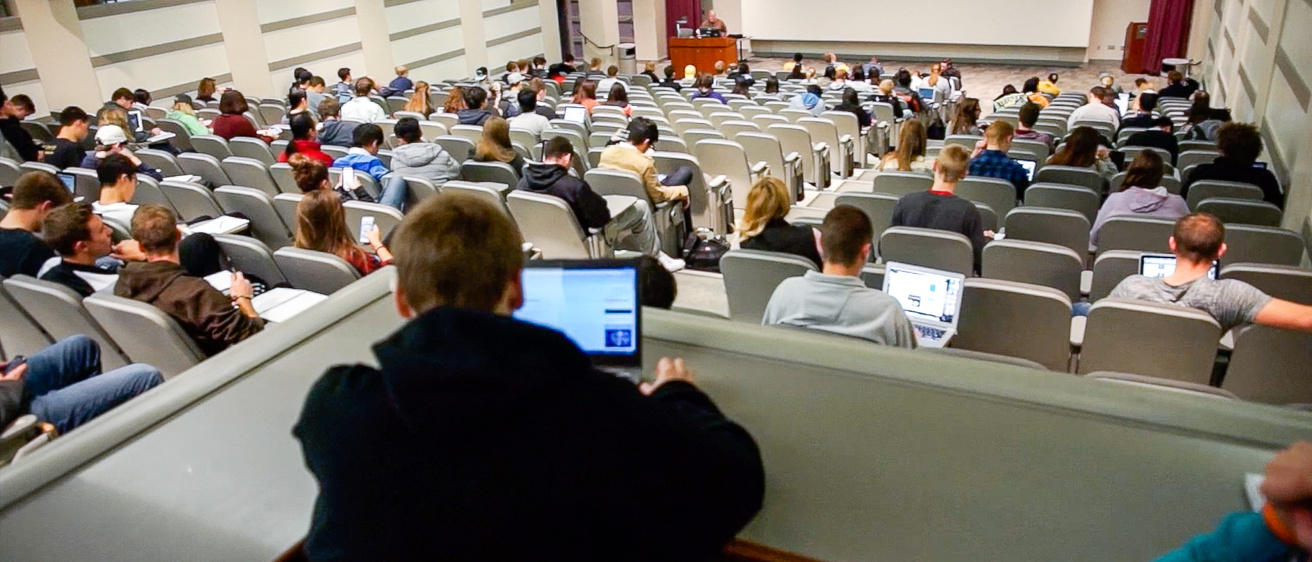Classroom Pass is an Iowa Now project that sent teams of writers, photographers, and videographers to 15 classes on Wednesday, Oct. 22, to showcase the breadth and strength of the University of Iowa's academic offerings for undergraduates as well as its dynamic faculty and state-of-the-art facilities. See what other classes they visited.
Class: Principles of Microeconomics
Instructor: John Solow, professor of economics
As students file into John Solow’s class at Pappajohn Business Building and take their seats, the opening guitar riff of The Pixies’ “Here Comes Your Man” starts to twang over the speaker.
“I play what I like,” says Solow of his daily musical warm-up. “The music serves two purposes—to get me psyched up and to let the students know when it’s time to be quiet and pay attention.”
When The Pixies wrap, Solow shares a story about Moldova, a thin strip of a country wedged between Ukraine and Romania. Desperately poor—the poorest country in Europe—energy is so expensive the national museum hires elderly women to sit in each of the galleries, turning the lights on when a visitor comes in and off again when the visitor leaves.
It’s a story that reflects the day’s lecture themes of short run production, inputs, outputs, and costs.
“In Moldova, it’s cheaper to pay little old ladies to sit in a room and turn the lights on and off than it is to pay for electricity,” says Solow. “And little old ladies work cheap because social security in Moldova is pretty awful. It’s tough being a little old lady in Moldova.”
Solow takes his teaching seriously, a lesson learned from his father, Robert. A Nobel Prize winning economist at MIT, Robert had earned University Professor status, which waived his teaching requirements so he could focus on his research. Yet he continued teaching, even after his retirement.
Learn more about the Tippie College of Business.
“I asked him once, why do you keep teaching, and he said, because it’s part of what we do,” the younger Solow says. “As an academic, he said it would be wrong to do nothing but research and not teach about what we learn.”
